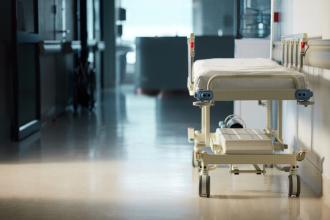Searching for the silver lining
We’ve missed so much this year. The directly tragic stories are of families missing loved ones lost to or harmed by the virus, or those suffering from isolation: poverty, loneliness, addiction, and mental illness. Overlying everything is the “lessness” of our ability to give our patients and loved ones full attention and care.
I cannot emphasize enough how much respect and gratefulness I have for my colleagues who face risk directly, looking after very sick patients. We who remain healthy and privileged to have safety nets in our lives and jobs have lived what should be a perspective-changing year.
First, we must acknowledge that living in this province, with the particular leadership decisions that have been made, and the luck associated with the timing of spring break, has left us in a better position than most. When we have needed our neighbors to do their part for one another, we and our communities have, for the most part, politely complied. And when we haven’t, the consequences have been frightening but, touch wood, not so catastrophic that we couldn’t continue our steady course through them. Watching the devastation across a political border, our fortune is clearly spotlighted. That spotlight also illuminates glimmers of silver linings.
We have been able to spend more time with our families in our homes, and to be creative with our time and energy in new ways. By allowing ourselves to simply do the best we could in the situation, we became open to accepting things that were, maybe, not traditionally acceptable. It’s now clear that supported, unfettered research can lead to successful results—novel vaccines have been developed with unprecedented speed and effectiveness. Having technology that offers us inexpensive face-to-face access to other people allows us to feel closer to those we can’t be close to. Fewer patients have had to travel the highways for their follow-ups, and almost all of them are grateful for the reduced risk and cost. These silver linings will be long-term.
Many of us have taken time to be alone with ourselves. We made walking in the street a destination. Some learned to make bread or knit or write music or teach math. Partners have had the opportunity to appreciate each other’s lives more fully. When we were publicly reminded to be kind, we didn’t roll our eyes. We saw how others were affected and learned how to reach out even when we were locked in. We were collectively moved by and shared things happening all over the world that we might have previously found mawkish—apartment-window-singing in Italy, pot-banging and applause marking 7 p.m. everywhere. We realized that we were part of something affecting all of humanity, all with equal jeopardy. As independent humans we were forced to accept being reduced by an invisible force to the vagaries of biology that we all share.
Silver linings are personal touch points during a time of anxiety, for most of us. It’s interesting to hear what people dream of doing when the pandemic is so-called over—eating inside a restaurant, enjoying a concert, taking a cruise, traveling in general, enjoying the breeze on an uncovered face. All of those sound wonderful, but for me, it’s experiencing the joy of touch again.
I am, to the base of my soul, a hugger. I hadn’t realized how much I rely on the warmth and security of closeness and touch. At work there was perhaps some privilege in being a woman of my generation to be able to socially touch patients. A hand on a shoulder, a shoulder for tears, the nest of our arms holding a baby. From seconds after we are born, we strive for skin-on-skin touch, and I see now that it never really left me. Touch feels warm, protective, and bonding. It can express grief, compassion, and care where words fail. People let into a circle of compassionate touch know that they are loved and cared for. The tacit exchange of vulnerabilities and comfort is otherwise difficult to express, outside of poetry.
Heartbreakingly, this year has made me touch-averse. I automatically widely avoid people on sidewalks and in hallways, move away in conversations, and even feel reflexively assaulted if someone comes too close or touches me. I wince during movies filmed pre-COVID-19 at what now stands out as absolutely reckless casualness in contact and unprotected faces. My brain feels completely rewired: I’m in some ways foreign to my basic nature.
The moment we can once again experience the joy of social touch will be the time that I define as things being back to right. It cannot come soon enough.
—Cynthia Verchere, MD

